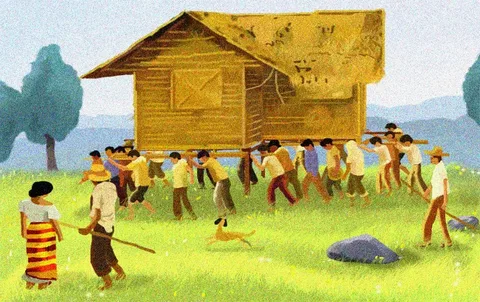In the Philippines, games have always been more than play. They are rituals of connection, ways of expressing community, and reflections of cultural identity. Among them, bingo stands out as a game that has bridged generations. From small-town fundraisers to smartphone apps, bingo continues to evolve, mirroring the shifts in Philippine entertainment, law, and society.
Online Bingo Games: Expanding the Circle
The core of bingo has always been its suspense—the thrill of waiting for numbers to align and the shared laughter when someone wins. Today, the game has found new energy online.
Platforms like bigbunny and Ebingo offer digital versions that preserve this excitement while making the game more accessible than ever. Whether you’re in Manila, Cebu, or abroad, the game’s spirit remains the same. Online bingo has become a bridge across distance, carrying tradition into the digital world.
Philippines Online Entertainment Trends: A Community That Adapts
Filipino entertainment has always been deeply social. Karaoke, street parades, and basketball tournaments highlight the nation’s love for collective joy. The digital era has not disrupted this—it has expanded it.
Online bingo fits seamlessly into this trend. Families separated by distance can now share games, creating a sense of togetherness even when oceans apart. Entertainment in the Philippines has shifted from physical gathering spaces to virtual ones, but the underlying value of community remains unchanged.
Gambling and Law: A History of Balance
Games of chance have always invited regulation. Ancient Chinese dynasties relied on lotteries to finance projects, while European monarchs alternated between banning and endorsing gambling. This cycle of acceptance and control is universal.
The Philippines follows a similar path. When PAGCOR granted licenses for online bingo in 2022, it wasn’t about introducing something new—it was about aligning laws with cultural reality. Bingo was already embedded in Filipino life; regulation simply ensured fairness, safety, and accountability in a new era of digital play.
The Science Behind the Attraction
Bingo’s appeal isn’t accidental—it’s hardwired into the human brain. Neuroscientists explain that unpredictability triggers dopamine release, making anticipation itself rewarding. Each number called offers a tiny rush of excitement.
Psychologists point out another truth: bingo is social. Whether in a bustling hall or a virtual chatroom, the game provides a shared ritual of suspense and release. For a society that values togetherness, this social aspect is why bingo continues to endure.
Entertainment as a Marker of Culture
Across history, archaeologists have unearthed dice, tokens, and game boards, showing that play has always been a central part of culture. Games are not mere diversions—they are expressions of identity.
In the Philippines, bingo has become one such cultural marker. It has played roles in fiestas, school fundraisers, and family evenings. Its migration online ensures that it remains relevant to younger generations, who increasingly live in digital spaces but still seek connection to tradition.
The Future of Bingo in the Philippines
What lies ahead for bingo? The possibilities range from virtual reality halls where players can experience the feel of a fiesta remotely, to AI-driven personalization that tailors games to individual preferences. What will remain constant is the essence of the game: suspense, joy, and community.
From barangay plazas to smartphone screens, bingo tells the story of how Filipinos adapt and innovate while holding onto tradition. It is a game of numbers, but also a game of culture, law, and connection.
For more perspectives on the evolving world of Filipino entertainment, Check the latest stories and insights.



